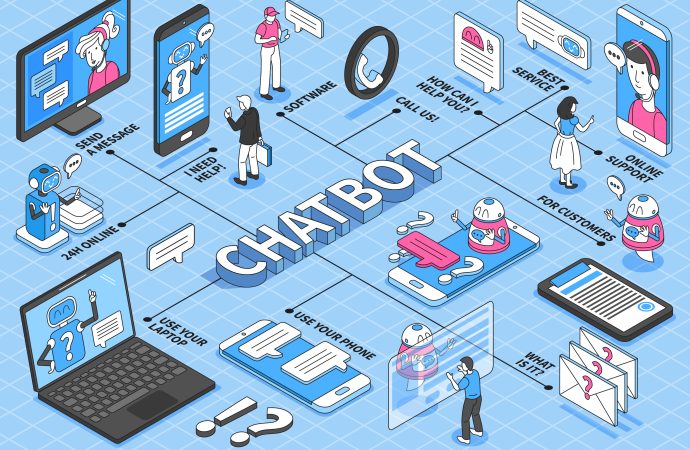In the ever-evolving landscape of artificial intelligence, a new era is dawning—one characterized by the proliferation of AI conversational assistants, commonly known as chatbots. These digital companions are revolutionizing the way we interact with technology, offering personalized assistance, streamlining processes, and enhancing customer experiences across various industries. As chatbots continue to gain traction, we find
In the ever-evolving landscape of artificial intelligence, a new era is dawning—one characterized by the proliferation of AI conversational assistants, commonly known as chatbots. These digital companions are revolutionizing the way we interact with technology, offering personalized assistance, streamlining processes, and enhancing customer experiences across various industries. As chatbots continue to gain traction, we find ourselves on the cusp of a chatbot boom, where their potential seems limitless.
Chatbots are intelligent software programs designed to simulate human conversations through text or speech. Powered by advanced natural language processing and machine learning algorithms, these digital assistants can understand user queries, interpret context, and provide relevant responses in real-time. From customer support and sales to healthcare and education, chatbots are being employed in diverse domains to automate tasks, improve efficiency, and enhance user engagement.
The surge in chatbot adoption can be attributed to several key factors. First and foremost is the exponential growth in AI capabilities, allowing chatbots to understand and respond to human queries with remarkable accuracy. This advancement has paved the way for seamless interactions, blurring the lines between human and machine communication.
Additionally, the widespread use of messaging apps and social media platforms has provided a natural channel for chatbot integration. Companies are capitalizing on the popularity of these platforms to deliver personalized services, instant support, and targeted marketing campaigns through chatbot interactions. This not only enhances user experience but also allows businesses to engage with their customers at scale, 24/7.
One of the key advantages of chatbots is their ability to handle repetitive and mundane tasks, freeing up human agents to focus on more complex and value-added activities. For instance, in customer support, chatbots can efficiently handle routine inquiries, provide instant responses, and guide users through basic troubleshooting steps. This improves response times, reduces wait periods, and ensures consistent service quality.
In the e-commerce sector, chatbots are transforming the way customers discover products, make purchases, and seek assistance. By analyzing customer preferences and browsing history, chatbots can offer personalized product recommendations, answer questions, and facilitate smooth transactions—all within the messaging interface. This not only enhances the overall shopping experience but also increases customer satisfaction and loyalty.
Healthcare is another industry witnessing the chatbot revolution. Intelligent healthcare assistants are being deployed to provide initial assessments, offer medical advice, and schedule appointments. These chatbots can swiftly analyze symptoms, provide relevant healthcare information, and guide patients towards appropriate care pathways. By reducing wait times and providing accessible healthcare guidance, chatbots have the potential to revolutionize the delivery of medical services.
Education is yet another domain where chatbots are making a significant impact. Intelligent tutoring systems are being developed to provide personalized learning experiences, adapt to individual student needs, and offer real-time feedback. These chatbots can engage students in interactive conversations, provide explanations, and facilitate self-paced learning. With their ability to scale, chatbots have the potential to extend educational resources to a broader audience, irrespective of geographical boundaries.
As chatbots become increasingly sophisticated, there are ethical considerations to be addressed. Ensuring data privacy, maintaining transparency in interactions, and avoiding biases are critical factors in the responsible deployment of chatbots. The ethical implications surrounding chatbot development and usage must be carefully navigated to maintain trust and protect user interests.
The future of chatbots is poised for even greater advancements. As AI technologies continue to evolve, we can expect chatbots to become more conversational, empathetic, and context-aware. Enhanced voice recognition, multi-language support, and integration with emerging technologies such as augmented reality and virtual reality will further expand the capabilities of chatbots, making them indispensable in our daily lives.

















Leave a Comment
Your email address will not be published. Required fields are marked with *